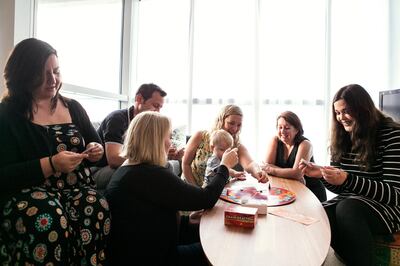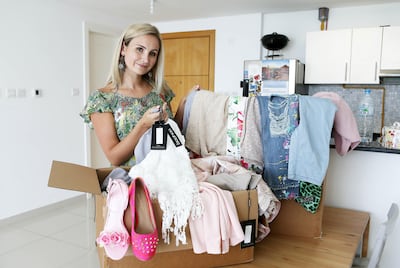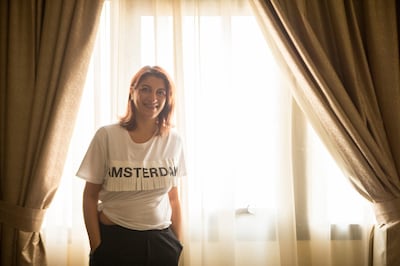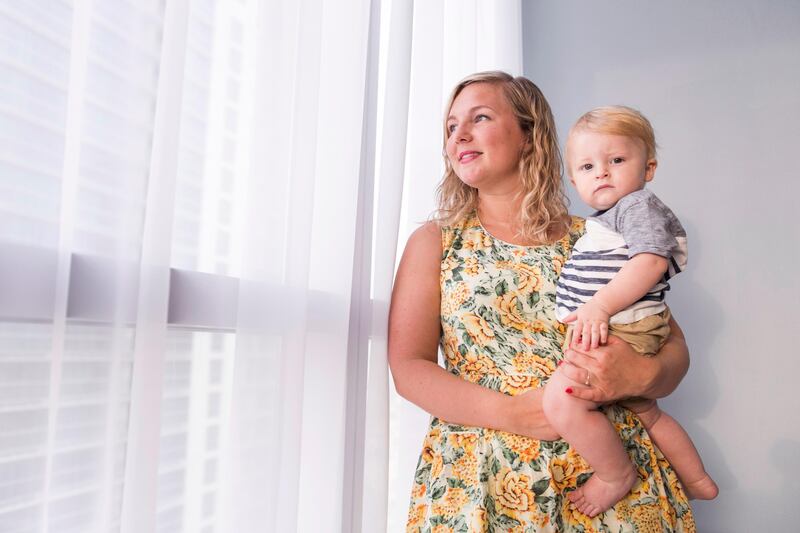It can be tempting to get caught up in the trappings of overindulgence, and fritter away potential savings on dining out, holidays, spa treatments or an ever-changing wardrobe.
“Staying in budget is a constant challenge with so many temptations around,” says British marketing professional Lorna King, who lives in Abu Dhabi. “With a large circle of friends that you often meet here, you get many invites to expensive places.”
But as a more prudent-minded expat, who is determined to return to her home country one day with a pot of money, as well as memories, Ms King has learnt to reign in her spending, and is discovering creative ways to be more thrifty.
“I love to host friends at my home,” she says . “This weekend I'm hosting a games night and potluck gathering (where each guest brings a different dish) with six others. It's really easy to get tempted to spend a lot of money, but mentally converting it back to my home currency can give me a reality check.”

According to a survey released by the payment solutions company, Payfort, earlier this month, almost three in 10 (27.8 per cent) of UAE residents say they are unable to save any money. And while 38 per cent set aside some funds, they can only save 10 per cent of their income a month. With nearly half of UAE residents still in debt, there is even more reason for residents to track their spending.
Ms king has been closely monitoring her spending for the last 18 months using the mobile budgeting app Wally to keep tabs on where her money goes.
The app, which was developed in Dubai, helps users compare their income to expenses, understand how their money is being spent and set goals. It is one of a number of budgeting apps that have entered the market in recent years; another, Money Dashboard, lets you view all your incomings and out-goings in one place, and groups similar transactions to highlight spending patterns. And Moneybox helps you invest money by connecting to your bank card, rounding up small everyday purchases to the nearest whole number, and putting the excess into a stocks and shares fund.
“It's the accountability that drives the behaviour change,” says Ms King. “Using the Wally app made me realise how much I was spending on salads at work, and encouraged me to walk more often to the canteen, which is much cheaper.”
Using a budgeting app is helping Ms King to save around 20 per cent of her salary and she is always on the lookout for ways to cut back.
She camps in the desert instead of indulging in hotel breaks, and says she is “a total voucher queen".
“If we ever eat out, try an activity, have a beach club day or if I get a beauty treatment, it's almost always either on a Groupon or Ladies Night deal, or using an Entertainer voucher," she says. "Some people don't like being restricted on venue by using vouchers, but it's actually opened me up to a lot of new experiences I might not otherwise have had.”
Steve Cronin, the founder of WISE, an independent community for financial education and support in Dubai, recommends looking out for two-for-one deals from providers such as Du, Etisalat and local banks, to ensure you get the best offers at restaurants and cinemas.
“Take five minutes to figure out what, where and how your providers can save you money,” he suggests. Mr Cronin claims that although saving requires discipline, it’s not hard. “You test your physical strength in the gym – now test your mental strength by saying no to an expensive brunch, bag or new gadget that you don’t need,” he says. “The Dh500 that you save by skipping brunch will be worth Dh5,000 in 30 years if you invest it sensibly in the stock market.”
_________
Read more:
The seven steps of effective budgeting
Dubai resident: 'I retired at 37 after achieving financial independence in two years'
Broke after the holidays? Here are 20 tips to get your finances back on track in the UAE
UAE residents cash in on the surging second hand market
_________
Learning to live with less is not just good for your wallet, but for your sense of wellbeing, according to researchers Damien Arthur, and Claire Sherman, from the College of Communication and Media Sciences at Zayed University. They found that those who assign high value to material possessions tend to experience lower levels of life satisfaction.
In their 2017 study of 235 expatriate and Emiratis living in the UAE, they found that levels of materialism on the global Richins Materialism Scale are 3.06 among Emiratis and 2.86 among expats, compared with 2.74 in Switzerland, 2.63 in Spain, 2.79 in Hungary.
“An increasingly judgmental consumer society and the materialistic expression of traditional values is leading to lower levels of life satisfaction, and an increase in financial distress, delayed marriage and family conflict,” the researchers wrote in their paper.
But a growing awareness of the perils of overconsumption is also spawning a minimalist backlash. In the UK, personal finance journalist Michelle Mcgath, who runs the London Minimalists community, confronted her spendthrift tendencies head-on by living an entire year, from 2015 to 2016, without spending any money at all (aside from her bills, and £30 a week on groceries).
“After a year, I realised that I valued financial security over material possessions,” says Ms Mcgath. “I don’t want to be forced to stay on the treadmill of work just to pay off a home loan for the next two decades, or accumulate more stuff. I also came to understand that I don’t need things to make me happy. Spending time with the people I love makes me happier, and if I do have money available, I’d rather spend it on them – like travelling to see my grandfather, or visiting my friend in Australia.”

In Abu Dhabi, Scottish recruitment consultant and blogger Jessica Smit has also taken budgeting to the extreme. In January, she pledged to go for a whole year without buying any new clothes, and claims to have already saved thousands of dirhams as a result. “I’ve had a very productive year with no clothes shopping to distract me,” she says. “I manage my blog, I do five gym classes a week, I’m studying Environmental Science part time and I’m reading on average one book a week. With the money I’ve saved, I’ve travelled to Fair Trade garment factories in India and Ghana to see people with much less than me, living very happy lives.”
Consuming less has also prompted Ms King to become more resourceful. “I use as many leftovers as I can when it comes to cooking, and I now have all my shoes re-heeled and cleaned when they start to look a little worn down - as opposed to chucking them out and buying new ones.”
Although going to such budgeting extremes can be insightful, Jessica Cook, a private client adviser with AES International financial consultants, recommends ‘efficient spending’ as opposed to ‘restricted spending.’ “It may involve ‘belt-tightening’ in some spending areas, but it shouldn't mean you're forced to deny yourself of everything you love – you’ll just be setting yourself up for failure,” she warns. “Just like you’d treat yourself every now again to something you wouldn’t ordinarily have in your day- to -day diet, our financial plan doesn’t need to be all hard work, and you can make room for small splurges.”
According to the 2017 Mercer Cost of Living Survey, Abu Dhabi and Dubai are the most expensive cities to live in the Arab world. For most people, the biggest monthly budgeting expense is their grocery shop.

In Abu Dhabi, Lilas Salaheddine, a Lebanese abstract artist and mum of three, sticks to a monthly food budget of Dh1,500 for the six people in her household, including the family’s nanny. “I drive a lot from one supermarket to another to get the best deals,” she explains. “Spar supermarket has a good deal on meat and Lulu on fish. One thing I don't change at all is having my kids eating five kind of fruit everyday.”
Ms Salaheddine won’t spend more than Dh150 on a pair of shoes, and buys their furniture second hand using community Facebook pages. “It's always more than 50 per cent cheaper (than buying new),” she says, adding that she used to feel ashamed buying second hand. “I don't care now,” she says.






